Capacity support - local government
the Ghana water sector
Capacity support refers to on-going support activities towards water service authorities (typically local governments) to enable them to fulfill their role (planning, monitoring, regulation, etc.) in sustaining rural water services. This may also include the provision of technical assistance and training of service authority staff around the key functions for which they are responsible.
Why is it important for sustainable services at scale?
A growing number of governments in developing countries have devolved the responsibility for water and sanitation services to local government. Whilst it is recognised that capacity support is critical to successful decentralisation, in practice, the type of support required has been lacking, resulting in a vicious circle of low capacity and service delivery failure.
Chronic problems
Triple-S country studies point to chronic capacity problems across all areas of local government in countries where local governments struggle to carry out even basic functions related to the provision of rural water services. One consequence is a low level of trust or confidence on the part of national authorities, which hampers efforts towards further decentralisation. National policies of decentralisation to local authorities have often not been backed up with adequate capacity development and resources to support the new responsibilities that include many roles, including provision of water and sanitation services.
Capacity challenges at the local level broadly fall in three categories:
- Technical skills required to fulfill the new set of responsibilities,
- Structural human resource weaknesses facing public administration in general
- Broader institutional limitations shaped by patchy and limited funding mechanisms.
Various approaches to strengthening capacity
A number of support modalities can be identified ranging in support from central government directly, to support contracted out from central government or horizontal support.
Support from Central government is the most common arrangement. In Uganda Technical Support Units provide support to all Districts; in South Africa the decentralised offices of the Department of Water Affairs have set up ‘one stop shops’ to ensure Water Service Authorities have access to specialist expertise and meet performance targets.
Peer-support or “horizontal learning” is common in Honduras and Bolivia where municipalities join forces to contract specific expertise.
Support contracted out from central government to specialised training centres.
Recommendations
- Long term funding is required to provide capacity support to local government
- Functions of all actors should be clarified following decentralisation process
- Local government should be incentivised by linking performance to funding and tailored-made technical support.
Field experiences
The following projects are making use of capacity support:
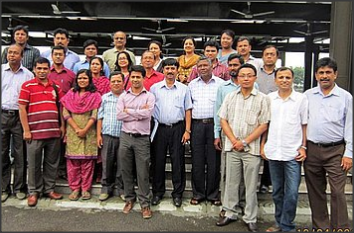 Creating an enabling environment for WASH |
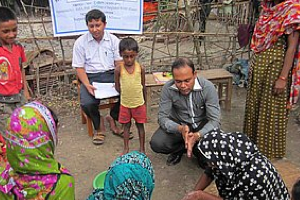 Sustainable progress in WASH |
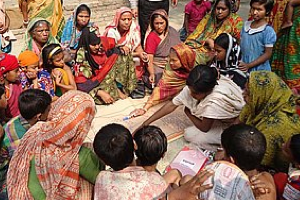 Access to safe water, sanitation and hygiene |
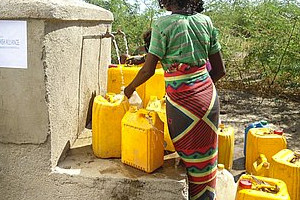 WASH Alliance project, AMREF in Ethiopia |
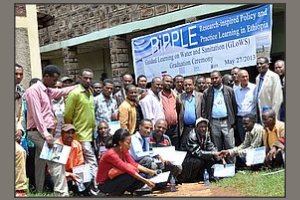 GLOW-Guided learning on Water and Sanitation | ||
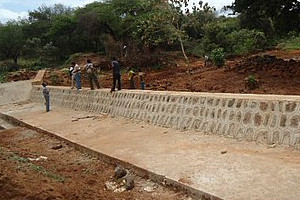 Support on WASH - in Miyo woreda |
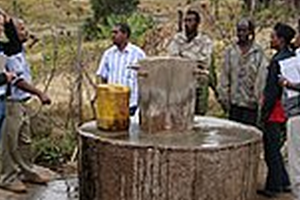 Rainwater Harvesting Capacity Center |
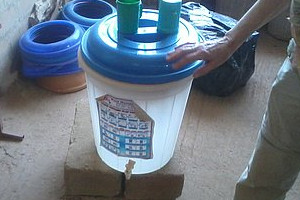 Cost effective means of financing WASH |
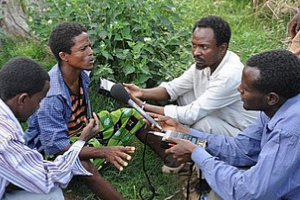 WASH Media Forum |
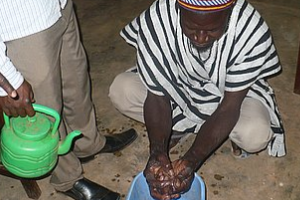 PHAST project | ||
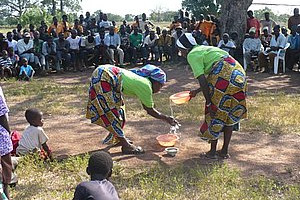 Partnership in WASH services delivery |
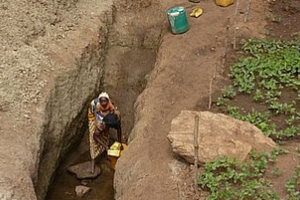 Introducing 3R in impact areas of DWA |
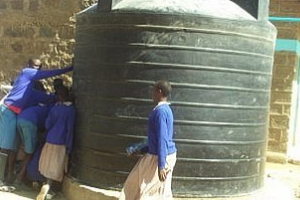 Implementing an IWRM process in Mashuru |
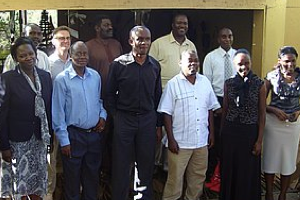 Promoting sustainable access to WASH services |
 WASH Sustainability through Women Led MFI | ||
Selected references, tools and templates
- Lockwood, H., Kang. M, 2012. Closing the gap : WASH sector devolution and decentralisation in Malawi.
- WASH Cost, November 2011. Working paper 5, Arrangements and cost of providing support to rural water service providers
- Capacity support to local government and building block summary sheets